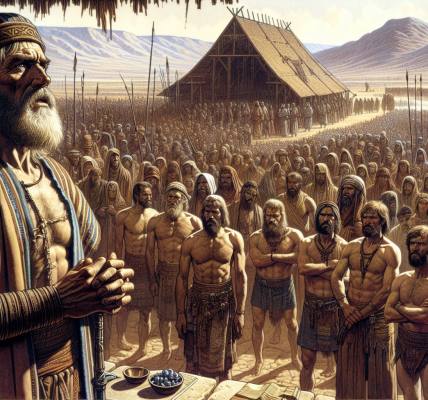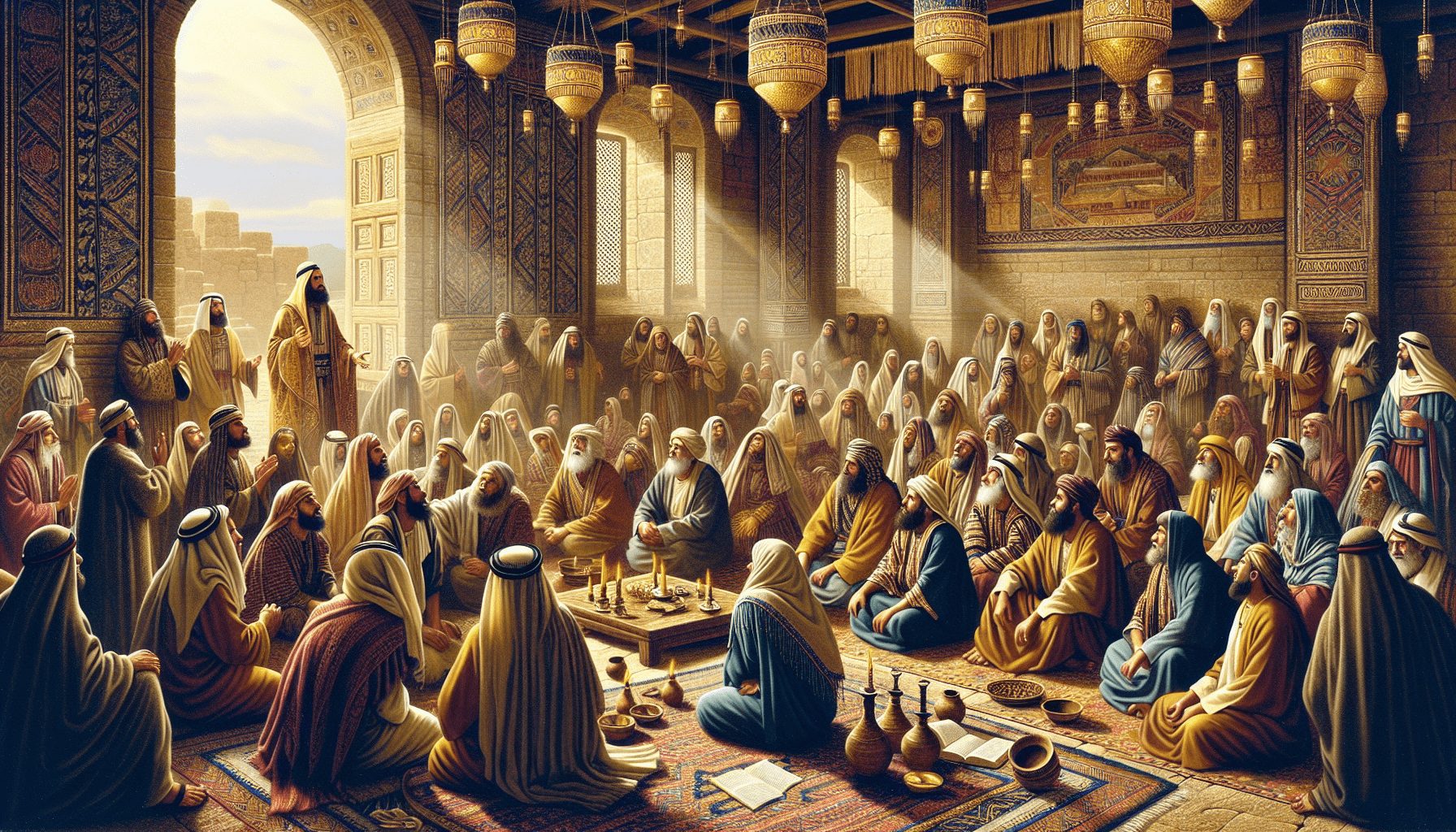**The Strength of Samson and the Riddle at the Feast**
The sun blazed over the rocky hills of Zorah, casting long shadows as a young man named Samson, his muscles taut with divine strength, strode down the winding path toward Timnah. The Spirit of the Lord stirred within him, guiding his steps toward a destiny he did not yet fully understand. His parents, Manoah and his wife, walked beside him, their faces etched with concern.
“Must you take a wife from among the Philistines?” his father asked, his voice heavy with disapproval. “Is there no woman among our people, the daughters of your kin, or all Israel?”
Samson’s jaw tightened, but his resolve did not waver. “Get her for me,” he said firmly, “for she is right in my eyes.”
Though his parents did not know it, this desire was from the Lord, who sought an opportunity to confront the Philistines, for they ruled over Israel at that time.
As they entered Timnah, the bustling streets teemed with merchants, soldiers, and laborers. The air smelled of roasted meat and spices, mingling with the dust kicked up by passing donkeys. Then, amid the crowd, Samson’s gaze locked onto a young Philistine woman, her dark eyes alight with curiosity as she balanced a water jug on her shoulder.
“There,” Samson said, pointing. “That is the one.”
His parents exchanged uneasy glances but said no more.
—
Days later, Samson returned alone to Timnah to finalize the marriage arrangements. The path took him through the vineyards outside the city, where the vines hung heavy with ripening grapes. Suddenly, a low growl rumbled through the air. Samson turned just as a young lion, its golden mane bristling, lunged at him from the underbrush.
The Spirit of the Lord rushed upon him, and with bare hands, he seized the beast. His fingers dug into its fur as he wrestled it to the ground. With a mighty heave, he tore the lion apart as easily as one might tear a young goat. Breathless but unharmed, he left the carcass among the vines and continued on his way, telling no one of the deed.
—
When the time came for the wedding feast, Samson returned with thirty Philistine companions, chosen as his guests according to custom. The banquet hall echoed with laughter and music, the tables laden with roasted meats, figs, and wine. The men jested and boasted, their voices rising in merriment.
Then Samson, his eyes gleaming with mischief, raised his cup. “Let me put a riddle to you,” he declared. “If you can solve it within the seven days of the feast, I will give you thirty linen garments and thirty changes of clothing. But if you cannot, you must give the same to me.”
The men leaned forward, eager for the challenge. “Speak your riddle,” they urged.
Samson’s voice dropped to a taunting whisper.
*”Out of the eater came something to eat,*
*Out of the strong came something sweet.”*
The Philistines frowned, murmuring among themselves. Three days passed, and still they could not unravel the meaning. Desperate, they went to Samson’s bride, their voices laced with threat. “Coax your husband to explain the riddle, or we will burn you and your father’s house with fire!”
Trembling, the woman went to Samson, her tears falling freely. “You hate me!” she cried. “You have told a riddle to my people but not explained it to me!”
Samson scowled. “I have not even told my father or mother. Why should I tell you?”
But she wept before him every day until, on the seventh day, worn down by her pleading, he revealed the answer.
At once, she hurried to the Philistines. Before the sun set, they came to Samson, smirking.
*”What is sweeter than honey?*
*What is stronger than a lion?”*
Samson’s face darkened. He knew at once they had deceived him through his wife. The Spirit of the Lord surged within him, and he stormed out to Ashkelon. There, he struck down thirty men, stripped them of their garments, and gave the clothing to those who had solved the riddle. Then, in furious silence, he returned to his father’s house, leaving his bride behind.
And the Lord’s purpose was fulfilled, for the confrontation between Samson and the Philistines had only just begun.



